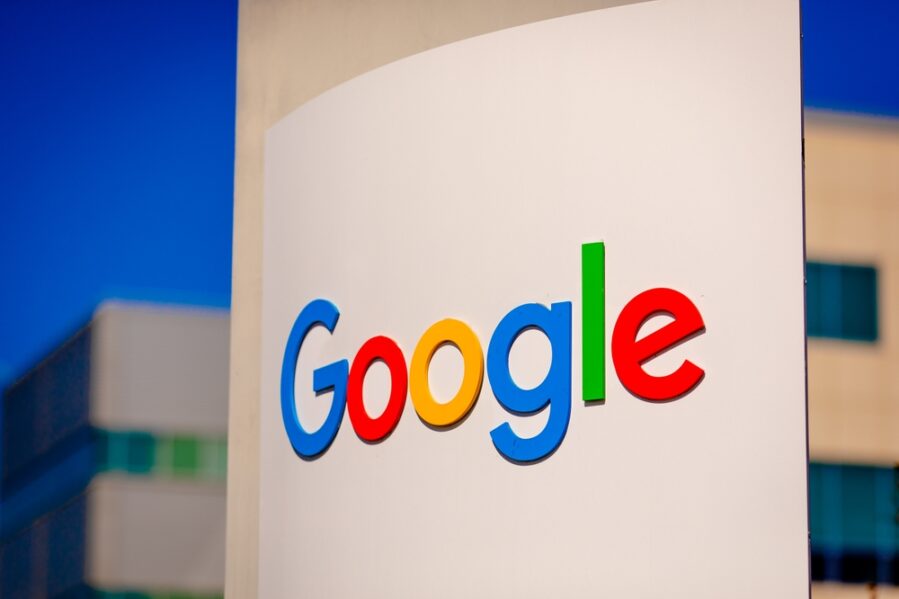Google bans sweepstakes casino ads

Google has tightened its advertising rules on social casino games, forbidding the marketing of sweepstakes casinos.
The company reclassified sweepstakes casinos as outside the scope of its ‘social gaming’ category, updating its global gambling and games policy to remove ambiguity around these platforms.
The change added a single line, “Examples of games that are not social casino games: Sweepstake casinos.”
The update means sweepstakes operators can no longer obtain Google Ads certification or promote their platforms across the company’s network.
Under the policy, social casino games remain defined as “online simulated gambling-style games where there is no opportunity to win something of value.”
Certified advertisers must display disclaimers that the content is intended only for users of legal gambling age, include statements clarifying that no real-money prizes are offered, and avoid using logos or names linked to real-money gambling.
Violations are considered “egregious” and Google warns that accounts breaching the rule “will be suspended upon detection and without prior warning.”
The tightening follows increased regulatory scrutiny of sweepstakes casinos, which operate dual-currency systems allowing players to redeem ‘Sweeps Coins’ for cash.
Several US states, including California, Nevada, New Jersey, Connecticut, and Montana, have banned them and named them disguised gambling operations. New York also passed an online sweepstakes gaming ban back in June.
The update aligns Google’s advertisement standards with stricter gambling compliance trends across jurisdictions.
Charlotte Capewell brings her passion for storytelling and expertise in writing, researching, and the gambling industry to every article she writes. Her specialties include the US gambling industry, regulator legislation, igaming, and more.
Verticals:
Sectors:
Topics:
Dig Deeper
The Backstory
Why Google moved now
Google’s decision to bar advertisements for sweepstakes casinos follows months of intensifying pressure on operators that blur the line between social games and gambling. The sweepstakes model relies on dual virtual currencies, one of which can be redeemed for cash, inviting comparisons to casino chips and raising questions about whether the activity should be regulated as gambling. Regulators in several states have concluded it should be. New York, for instance, has treated these products as illegal gambling and moved to shut them down, and lawmakers there advanced a ban designed to stop online sweepstakes operators from exploiting regulatory gray areas. Sen. Joseph Addabbo’s bill, S5935A, would codify that stance. Google’s ad policy shift aligns its commercial posture with the enforcement and legislative trends that gathered momentum through 2024 and early 2025.
The political and legal risks have grown alongside consumer harm claims. State officials describe the sweepstakes format as a back door to real-money gambling without licensure, oversight or responsible gaming obligations. By explicitly excluding sweepstakes casinos from its social gaming category, Google removed ambiguity, raised the compliance bar for advertisers and reduced its exposure to regulators and civil litigants targeting the distribution pipes that helped these apps scale.
Regulators escalate against the sweepstakes model
New York has been a focal point. In June, Attorney General Letitia James moved to shut down dozens of operators, sending cease-and-desist letters to companies accused of running illegal online casinos masquerading as sweepstakes. The attorney general’s office framed the move as a consumer protection effort against unlicensed gambling that can trigger fraud, addiction and financial harm. Coverage of the action underscored the stakes for operators and platforms alike: New York halts 26 sweepstakes casinos. The legislative companion effort advanced by Addabbo seeks to ban the model statewide, complementing enforcement with statutory clarity. The attorney general has continued to highlight the crackdown in official updates, including a public release that details the legal theory and scope of the action against sweepstakes sites (Attorney General James press release).
Other states have stepped up as well. In Maryland, the lottery and gaming regulator recently sent a cease-and-desist letter to Australia-based Virtual Gaming Worlds, operator of Chumba Casino and Luckyland Slots, warning it was operating unlawfully and demanding proof of compliance or a commitment to exit. The notice, part of a broader clampdown on unlicensed online gambling, signals that state agencies will hold a hard line on any product that functions like a casino without a license. The episode was chronicled in a report on Maryland’s cease-and-desist order that also noted a dozen operators have received similar letters.
These moves narrow the path for sweepstakes companies to advertise and acquire users. By classifying the model outside permissible social gaming, Google effectively cuts off access to a core growth channel, reinforcing the state-level push to treat dual-currency casino games as gambling.
Industry distances itself from gray-market operators
Major suppliers have begun publicly rejecting the sweepstakes segment, a sign that reputational and regulatory risk is reshaping distribution. Swedish slots developer Play’n Go said it will not provide games to sweepstakes casinos, citing its commitment to regulated markets. Company leaders argued the model undermines licensed ecosystems that channel revenue to jurisdictions and fund consumer protections. The stance, laid out in Play’n Go refuses to supply sweepstakes casinos, aligns with policymakers’ view that the dual-currency design is a workaround to avoid gambling laws. Supplier refusal shrinks the content pipeline available to sweepstakes operators and strengthens the case that digital casino play should occur only in licensed frameworks.
The supplier shift matters for platforms, too. App stores, ad networks and payment providers face pressure to ensure the apps they distribute or monetize comply with local laws. As regulators expand enforcement, the cost of being linked to contested models rises, creating an incentive for companies like Google to set clear rules and aggressively enforce them.
Platform liability fight widens
Technology platforms are also facing a separate legal challenge tied to casino-style apps, which has implications for how they police gaming content and payments. A federal judge in California allowed key claims to proceed against Apple, Google and Meta in litigation alleging the companies profited from illegal gambling by hosting and promoting social casino apps, while processing payments and taking commissions. The court found Section 230 of the Communications Decency Act does not insulate the platforms for roles tied to transactions, even as it dismissed some state law claims. The decision greenlights consumer protection allegations to move forward, with an immediate appeal to the Ninth Circuit available due to the importance of the Section 230 questions. The case is summarized in Apple, Google, Meta face lawsuits over casino-style apps.
For platforms, the legal risk extends beyond content moderation to business model choices. If courts continue to scrutinize payments and promotion around casino-style apps, companies may tighten policies to limit exposure. Google’s ad ban on sweepstakes casinos is consistent with a strategy to draw clearer lines around what it will monetize or amplify, particularly where state attorneys general and gaming commissions are taking aim.
Global pressure builds beyond the U.S.
The scrutiny is not confined to the United States. Indian authorities have intensified a money laundering probe into illegal ibetting platforms that use digital channels for advertising and payments. Google and Meta executives were summoned by the Enforcement Directorate after failing to appear earlier, with investigators seeking information under the Prevention of Money Laundering Act. The action reflects a broader crackdown on a network of banned platforms that rebrand and reemerge, often promoted by celebrities and influencers. Details appear in Indian authorities issue new summons to Google and Meta over illegal igaming.
India’s real-money gaming market is large and still growing, with complex federal and state oversight and recurring disputes over what constitutes gambling versus skill. The sector could exceed $9 billion by 2029, according to the Economic Times (India’s online gaming sector may cross $9 billion by 2029). That growth potential ensures regulators will continue to pressure intermediaries—app stores, ad networks and payment systems—to police illegal operators. As U.S. and Indian authorities turn up enforcement, global platforms have growing incentives to harmonize policies and cut off contested models across markets, rather than fight jurisdiction by jurisdiction.
Taken together, these developments explain the timing and scope of Google’s move. State enforcement is rising, suppliers are withdrawing, courts are questioning platform immunity and overseas regulators are expanding their focus on illegal betting. The sweepstakes model, once marketed as a compliant alternative to real-money casino apps, is increasingly treated as unlicensed gambling. Cutting off ad access does not settle the legal debate, but it reshapes the commercial environment in which that debate unfolds—and puts pressure on operators to either seek licenses or face shrinking distribution channels.









